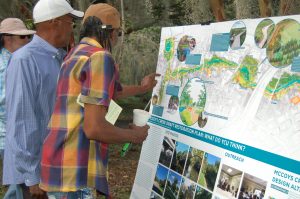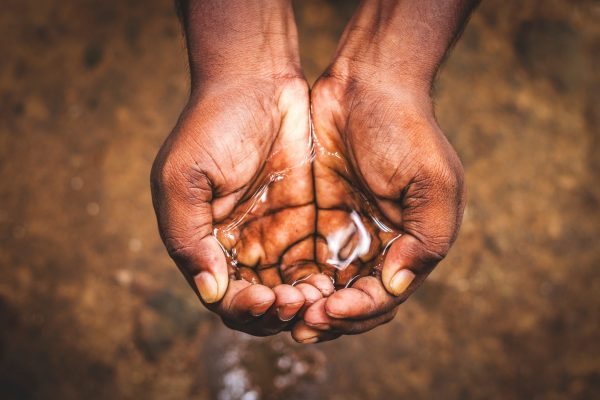River Voices: June 2022

Welcome to the June 2022 edition of River Voices. This month we’re pleased to release two new sections of the State Policy Hub, and a new story map on how our Equitable Development Collaborative goes beyond resilience, ensuring communities don’t face gentrification and displacement following urban waters restoration projects. Enjoy this shorter issue of River Voices as our team packs up for River Rally!
We’re excited to share the newest updates to the State Policy Hub! You may already know that you can find examples of state policies on the Hub related to drinking water and open water data. You can now also find sections on Environmental Justice and Bolstering Clean Water Act (CWA) Protections in the database, and introductions to each topic, along with deep dives highlighting policy language and providing context for how organizations across the network strategize and advocate for policy change and ensure implementation is a success.
The database itself is also completely reformatted for increased user-friendliness!
“Given the intersectionality of environmental and climate work, to me it’s really important to make sure there are a variety of voices within a coalition.” Meet LJ Portis and learn about his work as Environmental Policy and Advocacy Coordinator with WE ACT for Environmental Justice in the lastest “Lessons from the Network” interview in the State Policy Hub.
In case you missed it, Nicole Silk will be departing River Network after River Rally 2022 to join The Nature Conservancy. On the precipice of this huge change, she’s been reflecting on her time at River Network and the growth and evolution the organization has experienced. Our entire staff and board is grateful for her 8+ years of leadership.
River Rally 2022 will be a MASKED EVENT. Don’t forget your mask and proof of vaccination! We can’t wait to see the network in person in DC this weekend to celebrate awardees, be inspired by our keynote and plenary speakers, and learn from .
Build out your personal itinerary in Sched.
See you soon!
Equitable Development for Urban Waters: Understanding Gentrification and Preventing Displacement
 New development projects in urban waters communities—like river restoration and the creation of greenspaces—are intended to create more sustainable and resilient communities; but the impacts often result in a reduced sense of belonging for long-time residents coinciding with an increase in property values that is followed by the displacement of surrounding communities. Equitable development, in this case, means greening without increasing displacement pressures on already stressed urban communities. There are some important key elements that make this work possible in urban waters settings.
New development projects in urban waters communities—like river restoration and the creation of greenspaces—are intended to create more sustainable and resilient communities; but the impacts often result in a reduced sense of belonging for long-time residents coinciding with an increase in property values that is followed by the displacement of surrounding communities. Equitable development, in this case, means greening without increasing displacement pressures on already stressed urban communities. There are some important key elements that make this work possible in urban waters settings.
We’re Hiring! Community Engagement Associate
The Community Engagement Associate will provide support to River Network’s corporate relationships and their investments and engagement in local projects that restore water quality and quantity (e.g., community clean-ups, litter removal projects, etc.). The Associate will have strong experience in managing and delivering river clean-up events or other community/corporate engagement events and activities, tracking and evaluating results, public speaking, and working with partners to implement projects and engage diverse audiences.
What We’re Reading: “Tribes Call for Inclusion on the Colorado River”
Water Education Colorado’s recent piece features 2020 Compton Award recipient Daryl Vigil. A century after the Colorado River Compact was signed, Indigenous nations in the Colorado River Basin are organizing to secure quantified water rights, reliable water access, and a seat at the table in river management negotiations. Now, amid historic water shortages, and as the next river management framework is negotiated, there’s more urgency than ever.
The Colorado Water Plan – A Conversation on Exclusion and Movement Building
The Colorado Water and Equity Partnership invites urban farmers, acequia users and Indigenous and BIPOC communities in Colorado to discuss the upcoming Colorado Water Plan update and related opportunities for advocacy and action. We’ll be hearing from expert speakers on the limitations of historical water policy in the West and opportunities to influence the Colorado Water Plan in support of water justice. It will be important that all voices and perspectives of Colorado water users are included.







